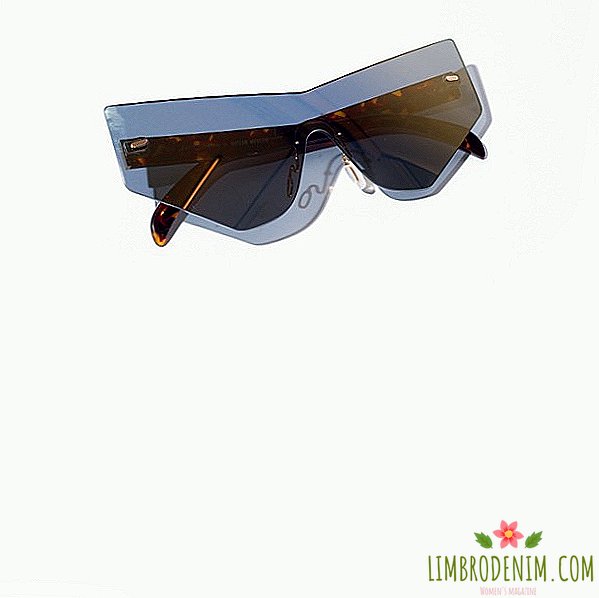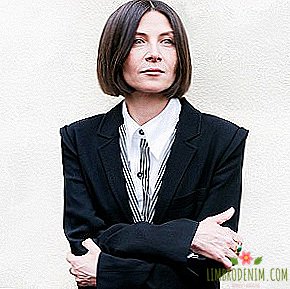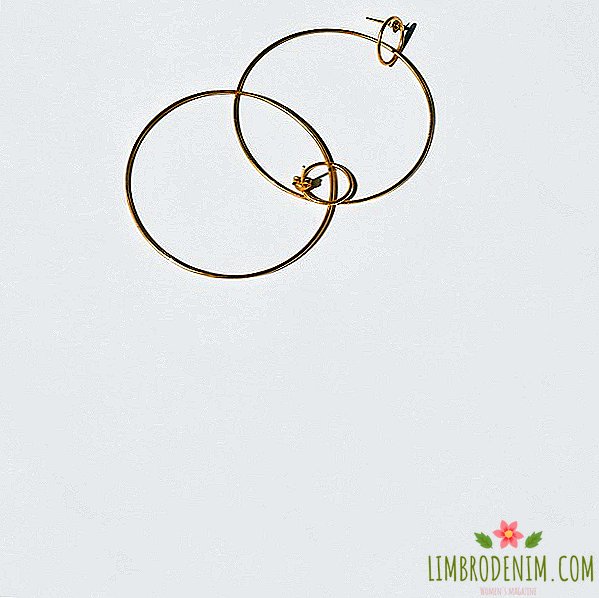Heroines of the Time 100 list you might not know

Alexandra Savina
Last week TIME magazine published an annual list. 100 most influential people in the world. There are a lot of famous women in this hundred - Angela Merkel, Caitlin Jenner, Nicky Minaj, Melissa McCarthy, Hillary Clinton - but we decided to tell about ten heroines of the list, which you could not hear, but on which you should definitely pay attention.
Hope Jarin

Hope Jarin is an American geochemist and geobiologist with a lifetime professorship contract with the University of Hawaii at Manoa, which has many prestigious awards. This year, Jaren released the book "Lab Girl" - a mixture of memoirs and a popular science book on botany. In addition, Jaren is known for openly speaking out against sexism and harassment in the scientific community: this spring, she wrote a column for The New York Times about how often women are forced to quit science, faced with harassment from colleagues. About how difficult it is to be a woman in a traditionally male environment, Jaren knows firsthand: in her department she became the first woman to go on maternity leave.
Nadia Murad

Nadia Murad is an Yezidi activist who spent several months in captivity in the Islamic State (an ISIS terrorist organization whose activities in the Russian Federation are banned. - Note ed.). In August 2014, ISIS militants attacked the village of Nadi, killing several hundred men and taking young women into slavery. The girl managed to escape only in November 2014, after several months of inhuman treatment. Since then, Nadia Murad has become an activist, her goal is to tell the whole world about the Yezidi genocide, which is carried out by ISIS, and how many women are still in sexual slavery in the Islamic State. Last December, Nadia Murad gave a speech to the UN.
Christiana Figueres

Christiana Figueres is a diplomat originally from Costa Rica. In 2010, she was appointed Executive Secretary of the United Nations Framework Convention on Climate Change and since then has been able to achieve serious results in the struggle to protect the environment. Last December, representatives of 195 countries participating in the Paris Climate Conference, with the active participation of Christiana Figueres, signed a historic agreement aimed at reducing greenhouse gas emissions into the atmosphere and switching to the use of cleaner energy. Despite this, in February, Figueres announced that she plans to leave her post at the UN after the end of her six-year term of service - in July of this year.
Christiana Figueres is not the only heroine of the Time list who is dedicated to protecting the environment. Sunita Narain, an activist who fights to protect the environment in India and against air pollution in New Delhi, also entered the hundred.
Laura Esserman and Shelly Hwan
Laura Esserman and Shelly Hwang are oncologists dealing with the problem of breast cancer. They offer a fresh look at the treatment of ductal breast cancer (one of the non-invasive forms of breast cancer, the earliest stage of cancer, sometimes referred to as stage 0). Most often, ductal breast cancer is treated by removing the tumor surgically and then performing radiation therapy. Esserman and Hwang believe that it is not always necessary to immediately use intensive treatment methods and resort to mastectomy: in their opinion, for the treatment of breast cancer at stage 0, it may be enough to take special medications and constant monitoring by doctors to notice any changes in the patient's condition in time. Such an approach, even in 2016, seems brave, but perhaps the future lies precisely with it.
Ibtihaj muhammad

Ibtihaj Muhammad - American fencer-saberlist. Ibtihaj is a Muslim woman, and one of the reasons why she decided to practice fencing is the ability to freely compete in hijab and a closed sports uniform. Later, she continued to practice fencing in order to change the traditional idea of him - according to her, this sport has long been considered an occupation of rich white people.
Muhammad struggles with stereotypes about Islam. “We are in a difficult political situation,” she said. “It seems to me that Muslims are now under special scrutiny, and I hope to change the society’s perception of Muslim women.” Ibtihaj Muhammad has won two bronze medals at the World Championships, and this summer she will compete at the Olympic Games in Rio de Janeiro - of course, in the hijab.
Katie Niakan

One of the most notorious news of this winter was that British scientists received permission to genetically modify human embryos. Katy Niakan - ontogenetic, leading the study. The group of scientists she heads explores the development of the fertilized egg in the early stages and studies which genes are necessary for the healthy development of the embryo using the CRISPR / Cas9 genetic engineering method, which allows for editing the human genome. Such studies should help to better understand the causes of miscarriages and infertility, as well as deal with them.
Jaha dukure

Jaha Dukure is an activist from the Gambia fighting female circumcision. In her infancy, Dukure herself became a victim of female circumcision, and at the age of fifteen she was sent to the United States to become the wife of a man much older than her. Jaha became known all over the world when she launched a petition on Change.org, which collected more than 220,000 signatures, after which the Barack Obama administration finally drew attention to the problem of female circumcision in the United States. Last year, thanks to the campaign of Jahi Dukure, female circumcision was legally prohibited in her native Gambia.
Tsai Wen

Tsai Wen was elected President of Taiwan, receiving more than half the votes in the January elections. She is the first woman who managed to take this post, but the victory was given to Tsai Inwen only at the second attempt - she wanted to become president four years ago. Now the politician is going to concentrate on solving the economic problems of Taiwan.
According to Tsai Inwen, now in Taiwan women are treated in politics much better than before. “Of course, some voters hold traditional views and oppose the country's leadership being a woman,” she said. “But the younger generation likes the fact that the state is ruled by a woman. They think it is even fashionable in some sense.” Tsai Invan will take office on May 20th.
Yu Yu Tu

Chinese woman Yuu Tu won the Nobel Prize in Physiology and Medicine last year because she was able to isolate the substance artemisinin from one-year wormwood: it formed the basis of anti-malaria drugs, which significantly reduced the mortality rate among patients. Yuu Tu is the first Chinese woman to win the Nobel Prize; her discovery was made possible by the fact that she had been studying Chinese traditional medicine and traditional medicines for a long time.
Yu Yu Tu is not the only Nobel laureate in the Time list; it also included the Peace Prize winner, the Burmese Democratic leader Aung San Suu Kyi. An essay about her for the magazine was written by Barack Obama.
Sanya Mirza

Sanya Mirza is an Indian tennis player and one of the highest paid female athletes in the country. Due to injuries, she was forced to stop performing in singles, but then, after a while, she was able to find herself again in doubles tennis. Now Sanya Mirza is the first racket of the world in the doubles rating, she performs together with Martina Hingis.
Mirza says that women in the traditionally male field have a very difficult time. "If you are a woman, you need to fight harder," she said in an interview with the BBC. "This is happening not only in India, not only in this part of the world. This is happening all over the world." Despite her status, the athlete is still forced to fight prejudice: a few days after her victory at Wimbledon at a press conference, she was asked when she plans to have a child.
Photo: Shutterstock, Nadia Murad / Twitter, Getty Images (5), Duke University, Bullet Biotechnology, University of Hawaii, The Francis Crick Institute




